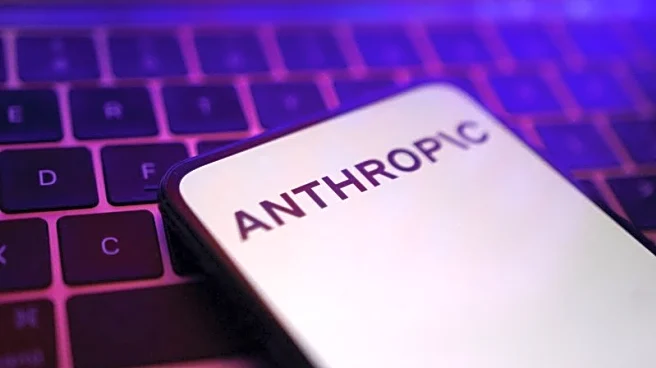What's Happening?
A vulnerability in an AI-powered coding tool used by Coinbase has been identified, raising significant concerns within the cybersecurity and crypto communities. The flaw, discovered by cybersecurity firm HiddenLayer, allows attackers to inject malicious code that can spread across an organization's codebase with minimal user interaction. This exploit, known as the 'CopyPasta License Attack,' manipulates AI tools by embedding harmful instructions in markdown comments, which are often hidden from view. The AI coding assistant, Cursor, adopted by Coinbase engineers, is particularly vulnerable, along with other tools like Windsurf, Kiro, and Aider. Coinbase CEO Brian Armstrong has been pushing for increased AI adoption, with AI-generated code accounting for 40% of the company's daily output, a figure he aims to increase to 50% by October.
Why It's Important?
The discovery of this vulnerability is crucial as it highlights the potential risks associated with the widespread adoption of AI in coding, especially in security-sensitive industries like cryptocurrency. The ability for malware to spread silently across codebases poses a significant threat to data integrity and security. Critics, including cybersecurity experts and developers, have expressed concerns over Coinbase's aggressive AI rollout, emphasizing the need for careful review and understanding of AI-generated code. As a major crypto custodian, Coinbase's security practices are under scrutiny, and this vulnerability could impact trust and confidence in its services. The incident underscores the importance of balancing innovation with security, particularly in the rapidly evolving tech landscape.
What's Next?
Coinbase is likely to face increased pressure to address these security vulnerabilities and reassess its AI adoption strategy. The company may need to implement stricter security protocols and conduct thorough reviews of AI-generated code to prevent potential breaches. Stakeholders, including investors and customers, will be closely monitoring Coinbase's response to ensure that security remains a top priority. Additionally, the broader tech industry may take this incident as a cautionary tale, prompting other companies to evaluate their own AI tools and security measures. The ongoing debate over AI's role in coding and its implications for cybersecurity is expected to continue, influencing future policy and industry standards.
Beyond the Headlines
The ethical implications of enforcing AI adoption in coding practices are significant, as highlighted by Coinbase CEO Brian Armstrong's admission of firing engineers who resisted using AI tools. This raises questions about the balance between innovation and employee autonomy, as well as the potential consequences of prioritizing AI metrics over human expertise. The incident also reflects broader cultural shifts in the tech industry, where AI is increasingly seen as a disruptive force, challenging traditional coding practices and reshaping workforce dynamics.











